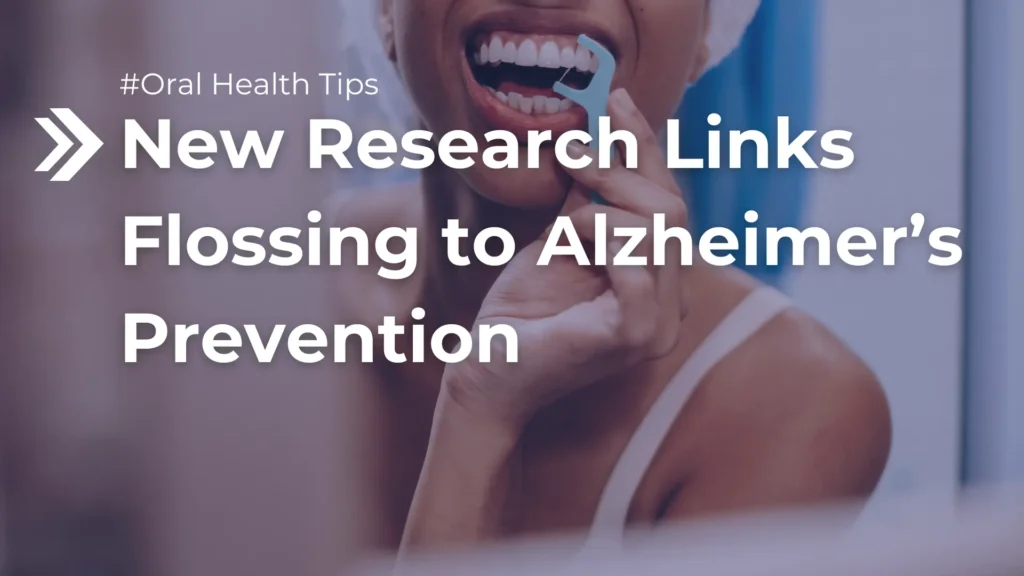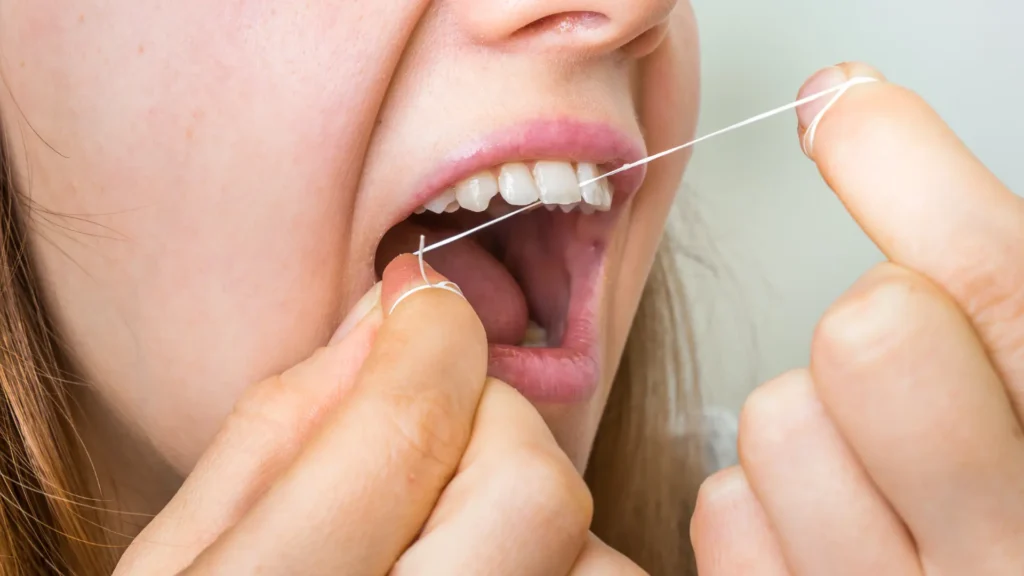
Flossing your teeth regularly offers many great benefits, some of which may surprise you. For instance, many studies have shown that protecting your gum health can protect your brain health and help prevent cognitive decline as you age. So then, does flossing prevent Alzheimer’s?
New research shows that this might be the case. If you were struggling to find the motivation to keep up your daily dental hygiene routine, you might feel newly inspired by these findings and what they have to say about the connection between your gums, your mind, and your body.
What the Science Says About Flossing and Alzheimer’s
Before jumping into the science, it’s essential to understand precisely what gum disease and Alzheimer’s disease are and what may cause them:
- Gum Disease: Also known as periodontal disease, gum disease is an infection of the gum tissue. It’s most commonly caused by poor oral hygiene, which leads to a buildup of bacteria-filled plaque and tartar in the mouth. Symptoms include swollen gums that easily bleed, sensitive teeth, gum recession, bad breath, and, eventually, loose teeth and tooth loss.
- Alzheimer’s Disease: This is a progressive brain disorder that causes confusion, memory loss, changes in mood and behavior, trouble with communication, and other cognitive issues. The cause of Alzheimer’s is still not clear, but several factors may contribute, including age, genetics, and environmental factors.
The Connection Between Gum Health and Brain Health
A recent analysis of 328 papers published between 2000 and 2023 found a connection between gum disease and Alzheimer’s disease. The researchers used what’s called a Systematic Literature Network Analysis (SLNA) to find this connection. An SLNA is basically a structured method for finding the ways that different studies connect and determining which evidence they provide is strongest.
Through the SLNA, these researchers identified two ways in which gum disease may raise the risk of Alzheimer’s:
Chronic Inflammation
When gums become chronically inflamed from the bacteria, plaque, and irritation, the body produces inflammatory molecules like cytokines that don’t just stay in the mouth. They may enter the bloodstream and permeate the blood-brain barrier, causing inflammation.
Body-wide inflammation stemming from gum disease may worsen or help trigger Alzheimer’s, which may be at least partially caused by chronic inflammation of the brain.
Bacteria
The Porphyromonas gingivalis bacteria that cause gum disease may travel from the mouth into the bloodstream. Bacterial components have been found in the brain tissue of people with Alzheimer’s. These bacteria may worsen Alzheimer’s symptoms or weaken the brain’s immune cells.
Flossing’s Role in Overall Health
Knowing that poor gum health may be connected to neurogenerative diseases can inspire a newfound appreciation of flossing. However, Alzheimer’s prevention is far from the only reason you should start thinking about your gum health. Some of the most notable flossing benefits include:
Preventing Gum Disease
While gum disease in its earliest stage (gingivitis) may only have mild symptoms, it can become far more serious as it progresses. Advanced gum disease can cause tooth loss, bone loss, heart problems, complications with diabetes, and has even been connected to certain cancers.
Reducing Inflammation
Oral bacteria can enter your bloodstream and cause body-wide inflammation. Inflammation is connected to many health conditions, including heart disease and diabetes. Limiting harmful bacteria in your mouth through regular flossing can reduce strain on vital systems throughout your body.
Improving Your Mental Health
The smile-confidence connection may be even stronger than the mouth-brain connection. If you don’t feel good about your smile, feeling confident in yourself can be extremely difficult. Flossing prevents gum and tooth loss, keeps your smile healthy, and protects your self-esteem.
Tips for Effective Flossing

If you’re new to flossing, consider the following:
- Consistency is Key: You should floss once a day, every single day. You can start slowly by flossing just a few teeth at a time, but continue to work up to flossing all teeth daily.
- You Have Options: If you don’t like traditional floss, you can try floss picks or a water flosser. The best option is whichever helps you remain consistent.
- Be Gentle: Being too rough can cause inflammation and soreness, particularly when starting out.
- Follow with Mouthwash: An antiseptic mouthwash after flossing can remove lingering bacteria, reduce plaque, strengthen enamel, and freshen breath.
Contact Babylon Dental Care Today
Your at-home oral care routine is important, but it can only go so far without regular visits to your dentist. Babylon Dental Care can help you prevent or treat gum disease to protect your oral and overall health. Contact us online or call (631) 983-6665 today to schedule your appointment.
Related Posts:
Flossing Is More Important Than You May Realize!
Perfect Your Flossing Technique With These Dentists’ Step-by-Step Instructions
